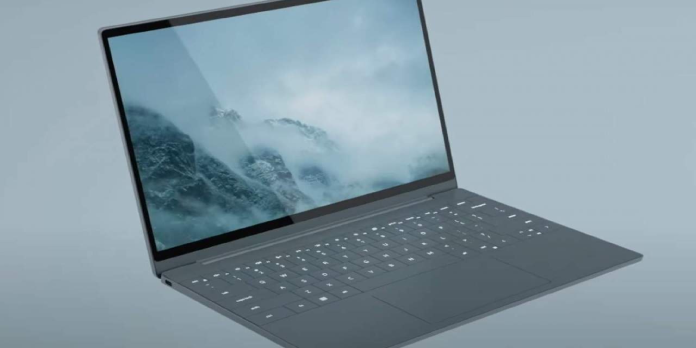According to Dell, concept Luna is a proof-of-concept laptop created with sustainability in mind. Though the model will not be available to the general public, the work put into it shows how manufacturers might approach laptop design in the future, minimizing their products’ environmental impact by embracing the circular economy, improving repairability, and more.
Electronic trash has a significant environmental impact because of the harmful substances it emits into the atmosphere and groundwater (via Elytus). By harvesting and, when possible, reusing elements for new devices, recycling plays an essential part in minimizing e-waste. On the other hand, recycling is simply one part of decreasing the environmental effect, with green initiatives highlighting the importance of reuse and longevity before recycling.
Many gadgets are discarded because they are broken to the point where restoration would be prohibitively expensive or time-consuming. Consumers may reject a perfect gadget if, for example, the cost of repairing it is comparable to the cost of buying a new one. This problem can be solved, for example, by designing products with future repair needs in mind.
Dell addresses these concerns with the Concept Luna laptop, which is designed to reduce the carbon footprint of its components, make future repairs easier, increase efficiency to reduce energy consumption, reduce the amount of scrap metal generated during chassis construction, and make it easier to recycle the printed circuit boards that power the machine.
In a blog post about the initiative, Dell‘s Chief Technology Officer for Client Solutions Group Glen Robson said, “Concept Luna is a strong example of how we are investigating innovative ways to accelerate progress toward our goals substantially.”
According to Robson, Dell has already made promises to the future of its environmental effect, including a goal to achieve net-zero greenhouse gas emissions and promote the circular economy. Part of the company’s work involves the circular design, which considers a product’s entire existence from conception through eventual recycling. Dell says it wants to create items that can be recycled or reused somehow.
Dell and Intel collaborated on the Concept Luna proof of concept, which was “designed to test what could be feasible, not to be built and sold,” according to Dell. Compared to commercial laptops, the resulting design incorporates several significant changes, such as a motherboard size reduction of roughly 75%, reducing the component’s carbon footprint by around 50%.
Robson claims that Dell’s Concept Luna team “totally revised the arrangement of all internal components” as part of the design, leading to better heat dispersion, efficiency, and repairability. The concept requires only four screws, considerably reducing the time it takes to service the laptop and making it quicker to fix components that frequently wear out or become damaged, such as the screen and palm rest.
Of course, the question is whether such breakthroughs will ever find their way into consumer items in a tangible way. The concept of creating more durable, repairable, and ecologically friendly technology isn’t new, but many previous attempts have failed.
Google‘s Project Ara, for example, was a modular smartphone that would allow users to replace and repair components that were built as standalone modules. However, the device’s design issues dogged it, finally abandoned it. Other less adaptable but modular phone prototypes slipped into obscurity, with little public interest.
That suggests that more sustainable designs don’t have a future, and the mounting push to address climate change will undoubtedly spur innovation. Some firms have found success with more ecologically friendly design philosophies, such as Fairphone, built with all components freely accessible and repairable.
Source: elytus | delltechnologies | corporate.delltechnologies | fairphone



